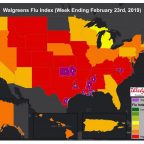Warm Up to These Winter Safety Tips
Winter activities, whether outdoors on the slopes or indoors by the fire, are fun ways to enjoy the season. Unfortunately, families frequently overlook some winter hazards that send thousands to the emergency room each year. Here are some safety tips for the winter season:
Space Heaters – Give Them Space
- Keep flammable materials, including curtains and bedding, at least 3 feet away from space heaters.
- Place the heater on a stable, level surface. Make sure it will not be knocked over.
- Never power the heater with an extension cord or power strip. Do not leave the heater on while you are not there or while you are sleeping.
- Have working smoke alarms on every floor and in every bedroom. The early warning provided by smoke alarms can save your life.
Snow Blower Hazards – Clear Snow Safely
- Most snow blower injuries happen when consumers try to clear snow from the discharge chute.
- First, stop the engine. Use a long stick, NOT your hands, to unclog wet snow and debris from the machine.
- NEVER leave the machine running in an enclosed area. The exhaust contains poisonous carbon monoxide which can kill in minutes.
- Finally, don’t add gasoline to a running or hot engine and always keep the gasoline can capped correctly.
Carbon Monoxide – The Invisible Killer
- Use portable generators outside your home and place them at least 20 feet away. Never use a generator inside a home, basement, shed or garage. The exhaust from portable generators contains poisonous carbon monoxide (CO) which can kill in minutes.
- Have your heating system inspected and serviced by a qualified technician every year, including furnaces and chimneys.
- Never leave a car running in a garage even with the garage door open.
- Most generator-related deaths from CO poisoning occur during the cold months. Have working CO alarms on every level of your home and outside sleeping areas.
Winter Sports Safety – Helmets Make a Difference
- Helmets aren’t just for kids — they’re for adults, too.
- Wearing a properly fitted helmet can reduce the risk of a head injury.
- Choose a certified helmet that is designed for the particular activity you’re involved in, e.g., bicycling, snowboarding, or snowmobiling.
- See our helmet safety publication Which Helmet for Which Activity for more information.






